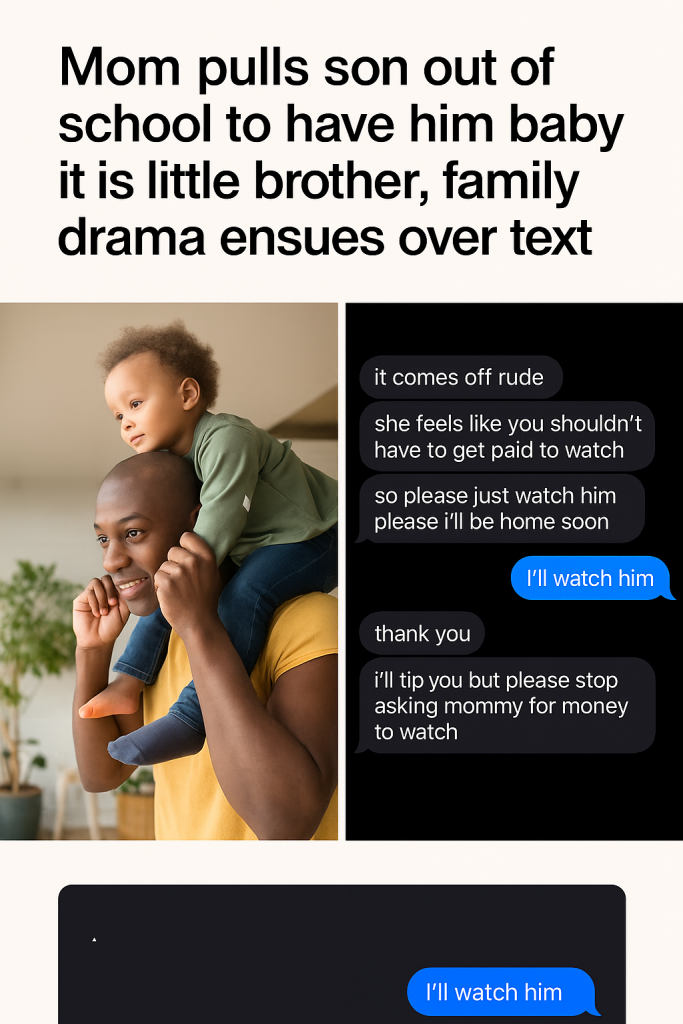A recent family dispute has captured the attention of online communities after a mother withdrew her son from school during the day to babysit his younger sibling, sparking heated arguments over text messages between family members. The situation highlights ongoing challenges parents face balancing childcare demands with children’s education and the tensions that can arise when boundaries are crossed.
According to shared screenshots circulating on social media in 2024, the mother abruptly called the school to excuse her son early, citing the need for him to watch over his little brother. While her intentions were to ensure the younger child was cared for, the decision quickly ignited controversy within the family, particularly in the conversations that followed via text.
The son’s father expressed frustration over the arrangement, arguing that pulling a school-aged child out of class for babysitting duties was inappropriate and potentially disruptive to his education. He conveyed through texts that while he understood the need for help at home, taking the son out of school felt like an unfair burden. The mother, however, defended her decision staunchly, stating that sometimes practical solutions require flexibility, especially when other childcare options are unavailable.
This disagreement escalated online as several family members took sides. Some sympathized with the mother’s predicament, pointing out the rising difficulties of managing young children’s schedules, particularly for working parents and single caregivers. Others sided with the father and the son, emphasizing the paramount importance of consistent school attendance and expressing concern over the long-term impact of such decisions on the child’s academic progress and social development.
Experts on family dynamics and child welfare echo the complexity of these situations. Child psychologists warn that while it’s common for older siblings to sometimes assist with younger ones, consistently relying on children to babysit during school hours can place undue pressure on them. They recommend parents explore community resources, after-school programs, or trusted external caregivers to alleviate such strains wherever possible.
The controversy also touches on the broader theme of parental stress and the juggling act between work, childcare, and education—all worsened by fluctuating support systems in many regions. Social media users engaging with this story have shared their own anecdotes of similar challenges, often fueling passionate debates about responsibility, fairness, and parenting priorities in modern families.
As for the family involved, it remains unclear if they have reached a resolution following the exchange of texts and mounting online attention. What is evident is that this incident has struck a chord with many people navigating the delicate balance between caregiving needs and a child’s right to education, shining a spotlight on an issue that resonates far beyond this single household.
Ultimately, the case underscores the importance of communication, empathy, and planning in family decisions that impact children’s well-being, especially when those decisions provoke strong emotions and differing viewpoints.



